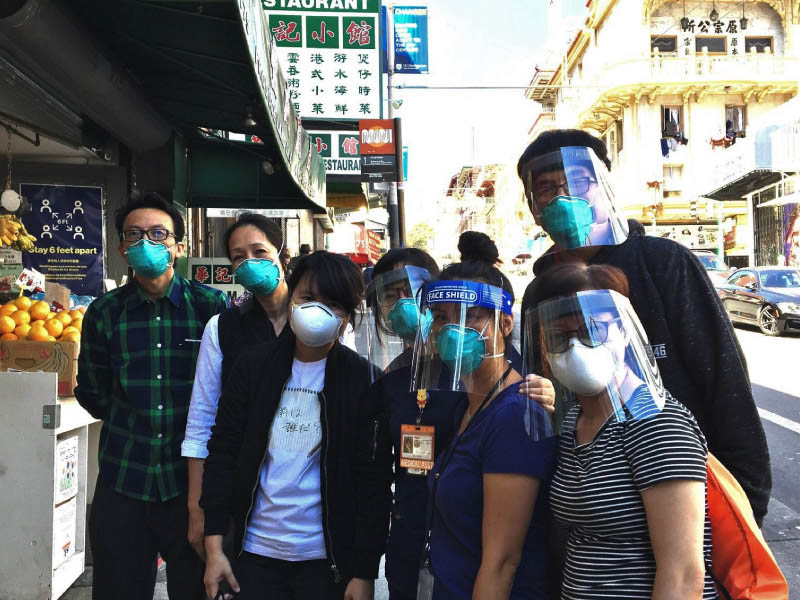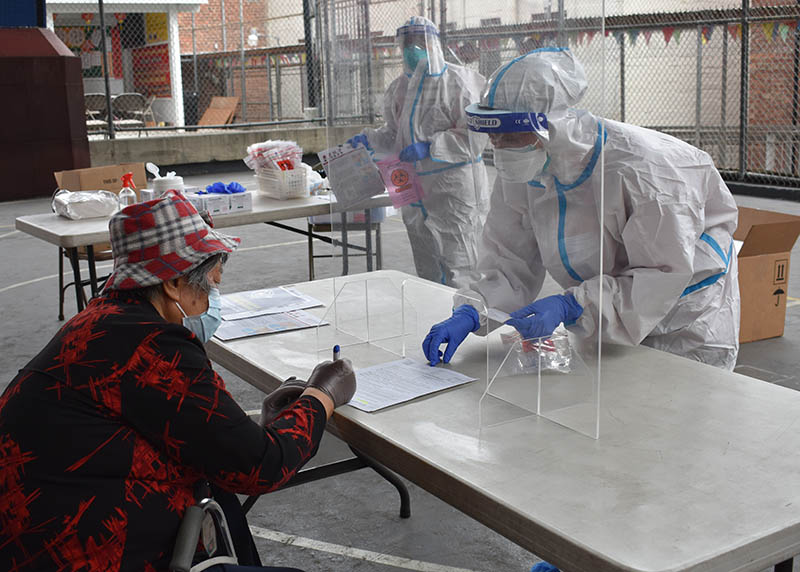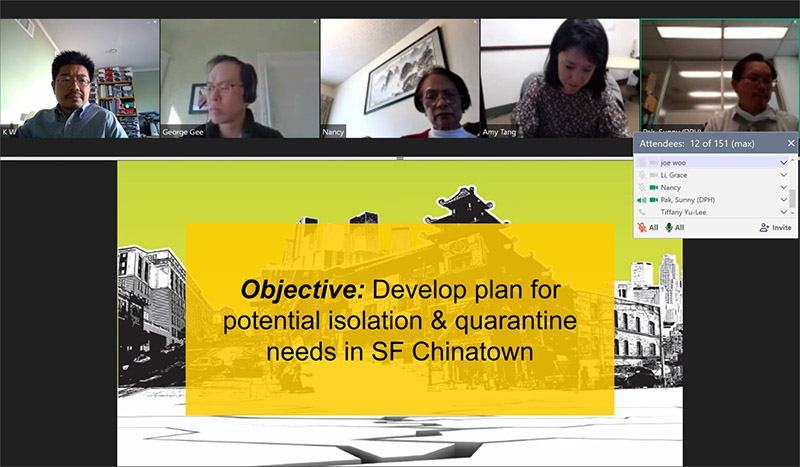Alliance focuses on health and well-being for San Francisco's Chinese residents

Last spring, watching the rapid spread of the novel coronavirus, activists in San Francisco Chinatown were worried. Few of the testing sites around town set up by the city had Chinese-speaking staff or bilingual information about the virus, despite the fact that Asians make up some 34 percent of the city's population.
NICOS Chinese Health Coalition got to work. Cantonese and Mandarin-speaking staff fanned out across Chinatown, the oldest in North America, to educate residents about how to protect themselves against the deadly virus.
Much of the focus was on single-occupancy residential hotels, known as SROs, which proliferate in the ethnic enclave. SROs make up an important source of affordable housing in San Francisco, where the average one-bedroom apartment rented for $3,500 a month prior to the pandemic.
A typical SRO provides a room that's 8 by 10 feet with shared toilets and showers down the hallway, making social distancing challenging, if not impossible. Some 30,000 San Francisco residents live in SROs, a third of which are located in Chinatown. Many are seniors who speak little to no English.
"There was a lot of concern among the Chinese community about the speed with which the city's Department of Public Health was able to deploy resources," said Michael Liao, director of programs for NICOS Chinese Health Coalition, an investee of the American Heart Association's Bernard J. Tyson Impact Fund. "They often couldn't identify the SROs and didn't have staff who spoke the language or have cultural understanding. So we decided to mobilize our resources instead of waiting."
The SRO Outreach Team created by NICOS hit the streets to urge residents to wear masks in common spaces, keep their distance whenever possible and get tested for COVID-19. NICOS also built an online, multilingual tool to help direct people to community testing sites.

Overcoming fear and stigma around testing was no small matter.
"Some people were afraid of testing positive and then being stigmatized, and others worried that they might be taken away from their families or lose their jobs if they tested positive," said Kent Woo, executive director of NICOS.
The NICOS coalition formed in 1985 when five organizations came together to advocate for Chinese residents of San Francisco. Today, more than 30 health care, education and faith-based groups make up the collaborative, including the Chinese Hospital, Chinese Self-Help for the Elderly and North East Medical Services, another Bernard J. Tyson Impact Fund investee. Seven nonprofits in the San Francisco Bay Area have received grants from the fund, named after a longtime national board member of the American Heart Association and former chairman and CEO of Kaiser Permanente who died in 2019.
The fund — which provides grants and loans to social entrepreneurs, small businesses and nonprofits — was established to invest in community-based solutions to reduce social and economic barriers to health equity.
A year into the pandemic, the city offers weekly testing in Portsmouth Square, the hub of San Francisco's Chinatown, where men sit hunched over games of chess and mahjong, not far from markets selling Peking duck, Chinese medicinal herbs and other traditional wares. Health updates are also regularly disseminated by the city using the local Chinese language media and WeChat, the Chinese social media platform.
"NICOS has put pressure on the city to pay attention to us," said Ding Lee, a property manager for SROs who worked with the organization to coordinate testing in the early days of the pandemic.
But challenges remain. Since the start of the pandemic, deaths from COVID-19 among Asians have been and remain higher than for any other demographic — currently 38% of all deaths, according to the San Francisco Department of Public Health. That suggests Asian Americans tend to wait longer to get treatment, said Woo. No specific data is available for the Chinese community, although NICOS is working to remedy that, advocating for greater transparency.

The coalition's coronavirus-related outreach also includes working with local health care providers to ensure follow-through on care and offering information and resources for people who test positive and need to quarantine.
Outside of COVID-19, NICOS tackles many other health and quality-of-life issues facing Chinese-American residents.
For 25 years, the coalition has held a health fair that offers health screenings and information, and has helped residents enroll in subsidized health plans. NICOS created a task force on children's oral health after learning that children in Chinatown had the highest rate of cavities of any ethnic group in San Francisco. The organization also created a problem gambling prevention program and support hotline and offers free training for service providers to help promote cultural competency in health care settings.
One big focus for NICOS is on dispelling the "model minority" myth — that Asian Americans are universally successful. NICOS advocates for the disaggregation of data on Asian Americans, which collectively tends to mask health and socioeconomic disparities, and for more granular analyses even within the Chinese population.
"It's hard to achieve equity if there isn't a recognized equity issue for your community," Woo said. "That's been the main challenge in our work."





